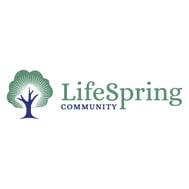Here's is an overview and tips for caregivers to recognize the importance to practice self-care while caring for a loved one. Practicing self-care will help you maintain the best mental and physical health.
As a caregiver for a loved one we tend to brush aside self-care as something we "don't have time for" or that we'll get to it "when we have time." Unless we make a commitment to ourselves, often that moment will never come. In today's ever-changing environment, it’s important for caregivers to practice self-care.
This guide provides tips on how to care for yourself as you care for your loved one. Read on to learn how we can all keep ourselves in the best mental and physical health possible so that we can provide the best possible care to our loved ones.
Maintain good physical and mental health
This may sound obvious though frequently many tend to focus on caring for others and delay caring for themselves, which may lead to poor health. A daily 30-minute walk or fitness class will do wonders in promoting stamina and clarity to help you manage your day. 
Routine exercise will help build endurance and increase your energy level, improve sleep, relieve stress and improve your mood. These considerations are especially important for those with health conditions, such as diabetes, hypertension or other chronic condition.
Understand how stress impacts caregivers
Stress presents itself in many forms. Here are seven signs of stress.

- Depression - symptoms include constant sadness, feelings of hopelessness or caregiver guilt, loss of interest and frequent crying.
- Anxiety – feeling anxious to get things done, or you may feel that you don’t have enough time, money or energy to do the things you need and want to do.
- Poor concentration – caregivers are constantly thinking about their loved ones and what they need to provide care. This can lead difficulty with focus on one task at a time while at home or even at work.
- Change in eating habits - stress can lead to emotional overeating or appetite loss
- Insomnia - Common sleep issues include an inability to fall asleep, waking throughout the night, and stressful dreams or nightmares.
- Exhaustion - despite a good night’s sleep difficulty waking up.
- Health problems – chronic stress negatively impacts the immune system which can lead to poor sleep and diet, drinking and smoking.
If you find yourself experiencing any of these symptoms on a regular basis, consider consulting with your medical practitioner. Also, reach out to family members, friends or respite care facility and use the time to decompress and allow yourself to recharge. This will allow you resume caring for your loved one.
Connect with fellow caregivers

When providing for a loved one, we may feel disconnected from life outside of being a caregiver. We don't always stop to consider that we need support ourselves. Connecting with fellow caregivers, talking through our individual challenges, giving and receiving support can be an immeasurable source of emotional strength.
There are local and national agencies that provide services for your loved one and can connect you to support groups. Many agencies are affiliated with state, local and national agencies. Agencies such as the Georgia Aging and Disability Resource Connection or AARP Home & Family Caregiving resource page offer valuable sources.
Stay connected to friends and loved ones
Human connections sustain us spiritually and emotionally, and we need to maintain healthy relationships not only with fellow caregivers but also with our family and friends. Staying connected with other caregivers and community are important and lends to caring for ourselves.
Church Home LifeSpring as an experienced provider of short-term and long-term rehabilitation services is committed to exceed caregiving to the Middle Georgia community. Contact us if we can assist you or a loved one

